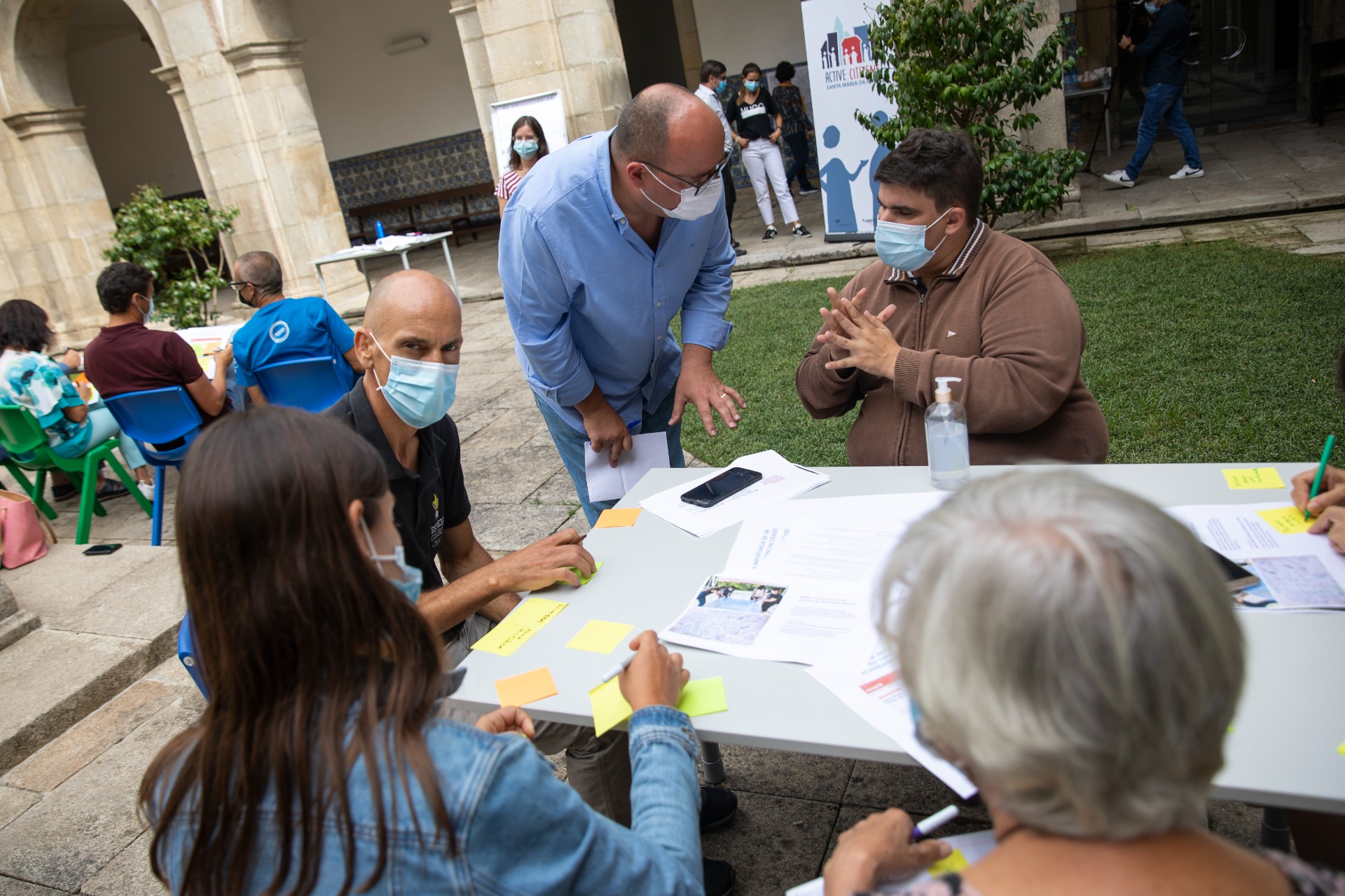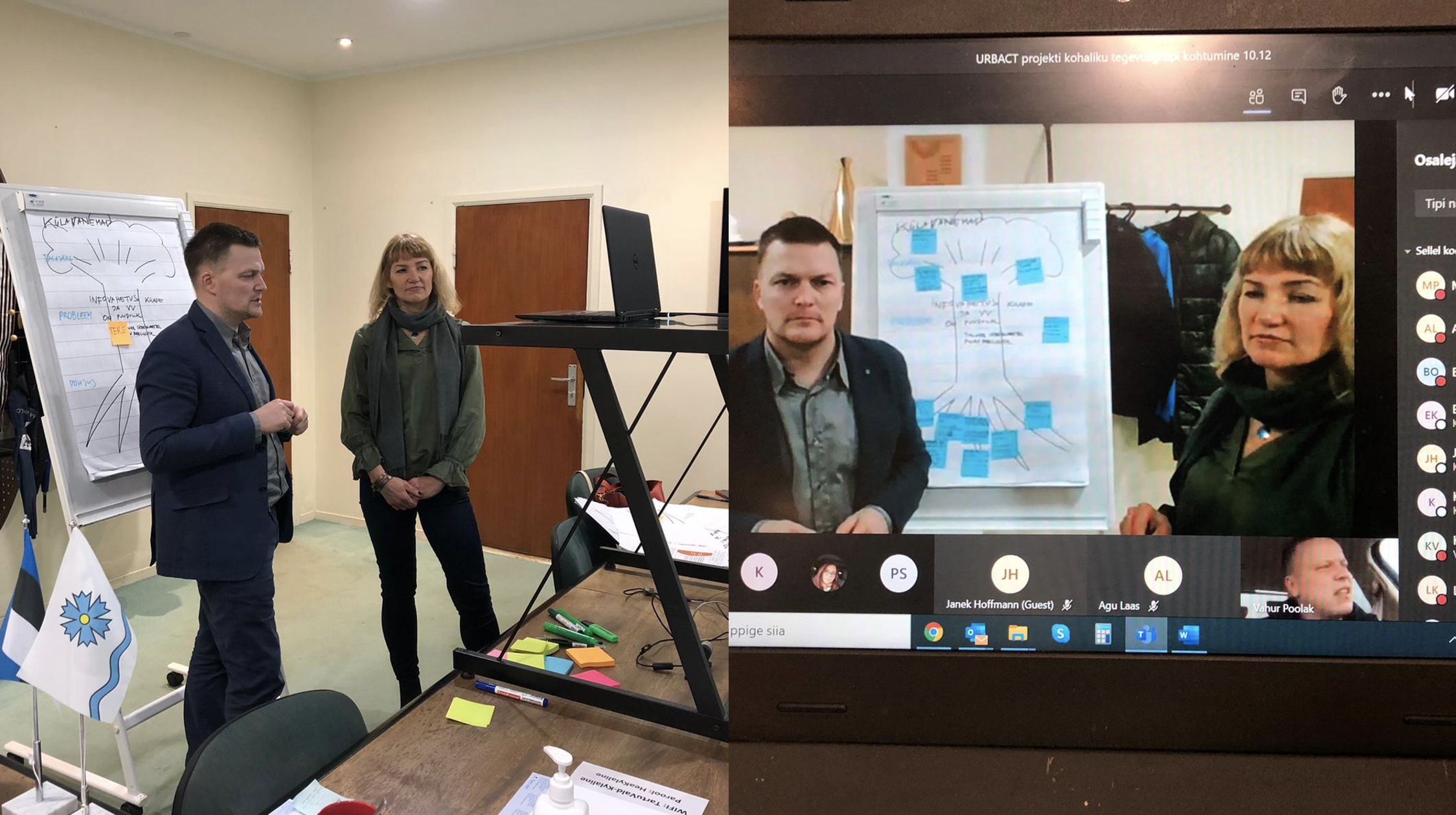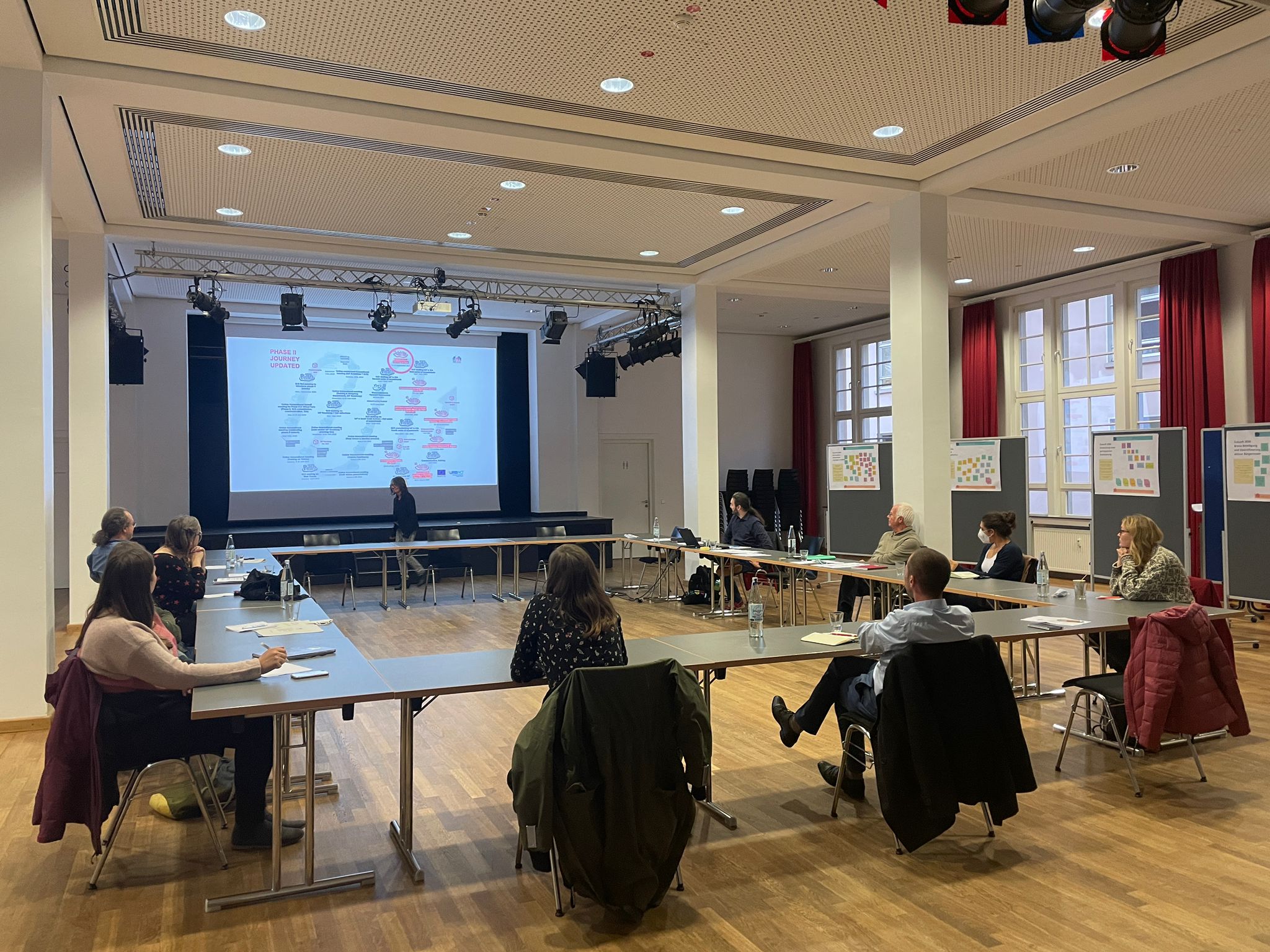URBACT Local Groups? Struggles ahead!
Edited on
16 November 2021ULG, which stands for URBACT Local Group (ULG), is a key ingredient of the URBACT methodology that can be found in all networks and programmes. But what's an ULG? An URBACT Local Group is a group of local stakeholders who co-produce the city strategies and action plans together with the city administration. To put it in a provocative way, the principle is quite simple: "the idea is to avoid doing policymaking as usual, meaning by the city administration on its own, without any stakeholder consultation". So basically, to "constrain" cities to enter into a minimum level of participatory process. Why? Simply because evidence has shown that policies built in participatory ways are more relevant, more efficient and better designed than those done without any co-creation, participation or at least any consultation. If setting up an ULG is not an insurmountable task, maintaining it active, lively, engaged, dynamic and enthousiastic throughout the life of the network is not an easy task. Especially when you have to compose with a worldwide pandemic...

As previoulsy mentionned, URBACT Local Groups are a key component of the URBACT method and it basically means that each city partner needs to gather a group of around 15-20 (in general) individuals representing a diverse set of local stakeholders. It might include civil servants from the local authority itself (including different departements within the local administration), beneficiaries/users, NGOs, public agencies, academics, the private sector (companies, local shop owners, local entrepreneurs, etc.) as well as the civil society (citizens/inhabitants). The idea is to gather all the parties who may either have some expertise on the challenge the city is trying to tackle, or have some interests, or have valuable knowledge, or have atypical perspectives, etc. Basically, anyone who the city think could be relevant, valuable, constructive, worth having on board the URBACT journey.
For me, the ULG should be considered more as a "crew casting" than a new formal institutional body of representatives of the usual parties (unions, federations, associations of associations, etc.). Each ULG is unique as each city makes it the way it wishes. But the best piece of advice to compose it would be to really think of the individuals that compose it. Think of key people (beyond the institution they may represent) that either have expertise, or that are known to be progressive, constructive or even disruptive, that are provocative, daring, proactive and positive. People who care about your challenge and want to tackle it. And, that are highly concerned with inclusivity (not leaving anyone aside) and ethics (acting for general interests) and, ideally, "sytem-thinking" (thinking of interelations, collateral risks, indirect impacts, rebound effects).
 Once you've identified your "dream team", you still need to convince them to take part to a journey they usually are not familiar with, are not paid for, yet will take them some time and will last quite long. But, since you've chosen great, active, voluntary people they agree. Bravo! You've got your ULG! Or at least, your ULG in its first version. Yes, first version because it's most probable that your ULG will evolve through time, and we'll see why.
Once you've identified your "dream team", you still need to convince them to take part to a journey they usually are not familiar with, are not paid for, yet will take them some time and will last quite long. But, since you've chosen great, active, voluntary people they agree. Bravo! You've got your ULG! Or at least, your ULG in its first version. Yes, first version because it's most probable that your ULG will evolve through time, and we'll see why.
Whether you're embarked on an action-planning network or a transfer network, these journeys are rather long and last usually about 2-3 years. And you'll need an ULG all along that journey. But keeping it from beginning to end vivid, enthousiastic, proactive and dynamic is clearly no easy task. And obvioulsy it gets worse when a pandemic decides to spread all over the world.

At roughly midterm of our URBACT journey, we've asked our cities from the Active Citizens network to speak out honestly and frankly about all the struggles they had and have with their URBACT Local Group and we decided to compile it all together and write a little article about it. So, here are the commonly found struggles within our network (there is no ranking order):
1. Confusion from members about the role and the mission of the ULG
This first struggle might sound strange but yes, quite a few members of ULG realize, through time, that they accepted to join the ULG but not necesarly with a good understanding of both what was expected from them but also what was the role of the ULG. Indeed, many of them accept to join the ULG to take action, to carry on concrete stuff and they find themselves reflecting (visioning), analysing (problem trees), system thinking (IAP), planning (IAP roadmap), etc. In brief, doing a lot of talking and reflecting and not so much hands on work. Due to that misunderstanding, it is rather common to see some members leaving the ULG boat. And it can be even worse: "we realized after a couple of weeks/months that people did not really understand the meaning/objective/destination of the ULG and the project so we had to renew the whole ULG from scratch" comments one of the city.
2. Difficulties to know the inner/personal priorities or motivations of each member of the ULG
Some cities told us that knowing the inner personal agenda of each member of the ULG was not always so easy, yet it was quite important in order to know why they are really here. What do they look for? For the intellectual added value? For defending personal interests? For pushing their own ideas? For putting some political pressure? For making friends with the city administration? For just socializing? Or simply for the common good and general interest? It's not always so clear, yet it might reveal to be quite critical in some cases...
3. Decreasing number of participants (people not showing up anymore)
Clearly, this struggle is the most commonly faced by cities. A slowly – or not so slowly – shrinking ULG group. You start with 20 people, then 15, then 10, then end up with 6 really active members. People stop showing up, for plenty of diverse reasons. This decreasing phenomenon can, amongst many others things, be explained by the covid situation which moved all ULG meetings online, making them, despite of all the efforts, less attractive and pleasant than face to face gatherings. This shrinking situation can be felt as a failure but it can also be seen as a natural and normal phenomenon. Indeed, an URBACT local group can be considered as a constantly evolving body in which some people leave and some people join depending on their interests, time availability and expectations. Yet, "it's hard for some ULG members to adopt the URBACT method (problem analysis, visioning, etc.) as they wish from the beginning to jump right away into actions" comments an other city.
4. Lack of political support of the ULG
Several cities have also mentionned their struggles in finding proper political support for their ULG. In fact, politics often intervene in identifying some people to invite to join the ULG but tend to progressively unfollow the ULG and what is happening inside of it. This lack of political presence is of course critical in key stages of the URBACT process such as vision building or the actual action planning process. "Officially, we have some elected officials in our ULG, but after a year and a half, they've still never showed up" comments another city.
5. Lack of diversity amongst the members of the ULG
Cities usually don't have a waiting list of hundreds of volunteers who want to join their ULG. It's rather the opposite, meaning that cities might have to compose with the ones they find and that agree to join. The issue? Some cities end with ULG that are not entirely satisfactory in terms of diversity and heterogeneity. For example, there's often an over-reprensation of civil servants and too few citizens. The difficulty sometimes also applies to age diversity.
6. You can't expect ULG members to do "homework"
Several cities have tried, during the confinement, to give to their ULG members some work to do in between online meetings. Not heavy work but simple tasks like putting some ideas on virtual post-its on Miro Board, or voting for ideas, etc. but most of them struggled in getting responses. Some ULG members did respond but many did not, making it, then, hard to work with on the next online meeting. Clearly, homework for ULG is a bad idea. Especially because being an ULG member is already demanding time, cities can't ask too much.
7. ULG members are not necessarily experienced, creative, disruptive, original
It depends on the network's challenge and topics, but in many cases, cities want to develop original, atypical, creative ways of tackling their challenge... yet many cities have told us that they were a bit frustrated by the fact their ULG members were not so disruptive, creative and knowledgeable enough in regards to the challenge. Ideas proposed by the ULG are too general, too classic, too conventional. This might differ from one topic to an other but it is worth mentionning. Is an ULG a consultation and co-creation body to ensure that the local Integrated Action Plan has not been done solely by the city administration or should an ULG be seen as a creative and disruptive lab in which innovations should be given birth?

Many struggles can be experienced by cities when dealing with their ULG, and these 7 points are clearly not exhaustive, they've just been shared by several cities. Many more could be added and just to cite a few other ones that were mentionned only by one or two specific cities, some also face: "Suspicion and skepticism is quite high amongst ULG members regarding the administration’s real will to change", "there are some dominent personalities in our ULG and that's getting problematic" or "it's hard to keep people motivated on the long run" comment other cities.
Some struggles can be put on the account of the covid situation (online meetings instead of face to face meetings), some on the URBACT method itself which implies a lot of "intellectual" reflections and planning rather than on hands on work (besides the Small Scale Action, which ULG all loved, at least in Active Citizens network), some struggles are more dependent on how each city manages and runs its ULG (convivial setting, interactive tools, building team spirit, etc.), some others are due to political/administrative involvement and/or organization, etc. Whatever the struggle, it's worth mentionning that none of the cities have given up the work with their ULG, on the contrary, they adapted, found alternative strategies, experimented new ways of working with them, etc.
To conclude, yes, URBACT local groups can be difficult to set up, to maintain, to facilitate, to deal with. Mostly because having to collaborate is harder than not having to collaborate. But it's worth it.
 Submitted by Christophe Gouache on
Submitted by Christophe Gouache on
